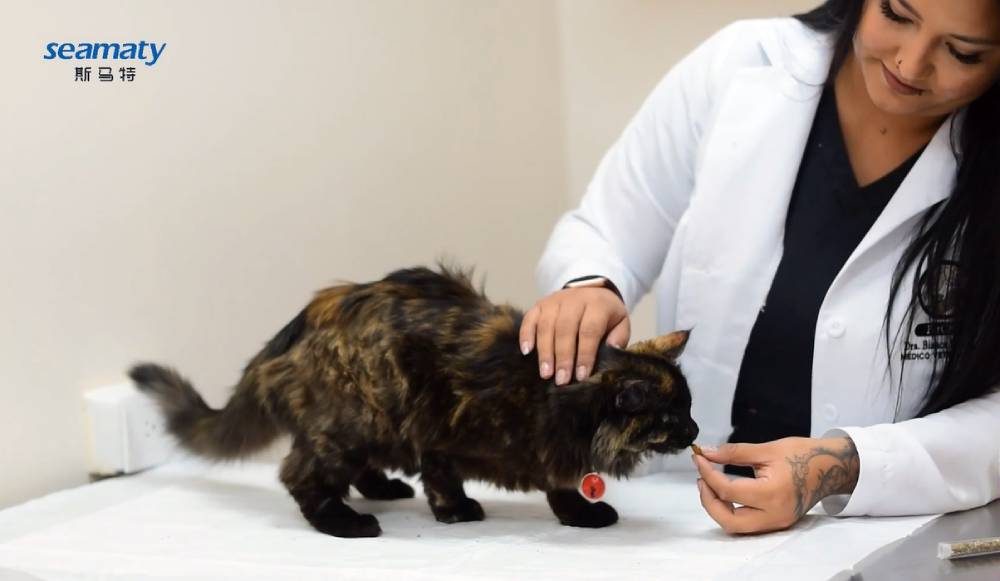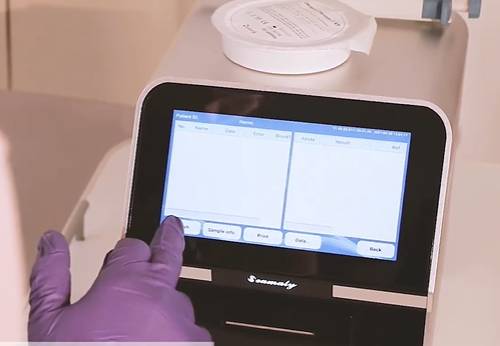release time:2021-04-20 14:44:25
Generally, blood samples for veterinary biochemical testing can be divided into three types: whole blood, serum and plasma.
Anticoagulated whole blood is the most common type of sample in veterinary biochemical testing.
For anticoagulation tubes, different colors of anticoagulation tubes represent different anticoagulants and uses.
For different testing items, the anticoagulation tubes are also different, and the correct selection of anticoagulation tubes can avoid errors in the results.
This article will introduce three common
anticoagulant tubes veterinary blood tests
Lithium heparin anticoagulation tube is
suitable for biochemical examination and blood gas analysis.
insufficient:
(1)Red and white blood cells and platelets are
very easy to aggregate and cannot be used for routine blood examinations. Blood
routine examinations generally use EDTA anticoagulation tubes.
(2)It interferes with the staining of white
blood cells, so it is not suitable for blood smears, nor can it be used for
classification and counting of white blood cells.
(3) The prevention of coagulation should not
exceed 8 hours, and it is not suitable for the determination of prothrombin
time. The general coagulation test uses sodium citrate anticoagulation tube.
(4) Heparin containing ammonium salt cannot be
used to determine the amount of blood ammonia.
Sodium citrate can form a soluble chelate with calcium ions in the blood to prevent blood clotting. Sodium citrate has a good protective effect on coagulation factor V and reduces its activity, so it is often used for blood coagulation inspections.
Uses and advantages:
As used in some clotting time studies (such as
APTT, PT, etc.), it is more suitable for coagulation testing.
insufficient:
(1) It interferes with the testing of many chemical substances, and is not suitable for biochemical testing. Lithium heparin anticoagulation tubes are mostly used for routine biochemical testing.
(2) It can only maintain a short anticoagulation time.
(3) Make blood cells shrink, which is not suitable for blood morphology research.
(4)Inhibit the activity of amylase.
Uses and advantages:
(1)It is often used for routine blood tests.
(2)It can maintain the anticoagulation ability for more than 6 hours.
(3)Non-toxic, fast excretion.
(4)The anticoagulant effect is better than heparin and oxalate
(5) The automatic blood cell sorting instrument uses EDTA-3K
Insufficient:
1. If an excessive dose of EDTA is used in the blood, the cells will shrink. As a result of cell shrinkage, the blood volume ratio (PCV), MCV, and MCHC values are reduced, and the platelet value is affected.
2. It will increase the amount of non-protein nitrogen (NPN), so it is not suitable for NPN determination.
3. It will interfere with colorimetry, so it is not suitable for alkaline phosphatase (ALP, SAP, AP) activity determination.
4. Increase the binding capacity of carbon dioxide, which is not suitable for measuring the amount of carbon dioxide in the blood.
5. Not suitable for the jaffe method to determine creatinine value (Creatinine).
6. Sodium salt is less soluble than potassium salt, so potassium salt is commonly used.
7. The quantification of calcium, potassium and sodium cannot be determined. It will cause low levels of chlorine, calcium, and amylase, and abnormally high levels of potassium.
8. When the blood volume is too small, the error value of the number of platelets is large.
9. If there is no uniform anticoagulant blood, false thrombocytopenia is prone to

2021-04-22
The blood coagulation reagent with four indexes launched by Chengdu Seamaty Technology Co., Ltd. used with SMT-120V, an automatic biochemical analyzer, is suitable for preoperative examination of pets, which can help doctors to understand whether the animal's hemostatic function is defective. The preoperative examination can prevent intraoperative bleeding.

2021-04-22
Compared to human medical testing, abnormal samples account for a larger number of blood samples that can be collected by veterinarians. When collecting blood, what should be done with abnormal samples such as lipemia, hemolysis, jaundice and coagulation?

2021-04-20
Generally, blood samples for veterinary biochemical testing can be divided into three types: whole blood, serum and plasma.Anticoagulated whole blood is the most common type of sample in veterinary biochemical testing. For anticoagulation tubes, different colors of anticoagulation tubes represent different anticoagulants and uses.